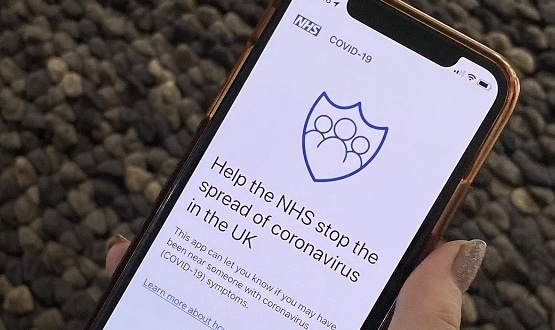Government ‘cannot rely on contact-tracing app to ease lockdown’

The government cannot rely on the use of a contact-tracing app to ease social distancing measures and minimise the risk of a second peak, a government committee has found.
In a letter to Prime Minister Boris Johnson on the lessons learned so far during the pandemic, Science and Technology Committee chair Greg Clark said experiences from other countries made it clear that the UK cannot rely on an app to control the spread of Covid-19.
Without sufficient contact tracing capabilities social distancing restrictions may remain in place for longer. The letter detailed 10 recommendations for the government, including greater transparency around its scientific advice informing its response to the outbreak.
It is “critical” that capacity for contact-tracing is advanced for “further stages of managing the epidemic”, the committee found.
The letter details accounts from several experts on the use of digital contact-tracing, including NHSX chief, Matthew Gould, and Professor Christophe Fraser of Oxford’s Big Data Institute.
“Professor Christophe Fraser told us that the use of digital contact tracing applications would be necessary to manage the spread of Covid-19 as manual efforts would be “unlikely to be quick enough” to inform those who might be infected,” the letter states.
“Nevertheless it is clear from the experiences of other countries, such as Singapore, that we cannot rely on the use of a contact tracing application to fulfil our needs.
“Indeed, Matthew Gould, the chief executive officer of NHSX—which is developing the app—indicated to us that achieving the levels of uptake required for this approach to be optimal would be ‘tough’.”
The committee called on the government to “urgently build up” contact tracing capacity to facilitate further easing of social distancing measures as soon as possible.
Clark said: “The Government has drawn extensively on scientific advice during the pandemic and should continue to do so.
“Greater transparency around scientific advice; putting capacity in place in advance of need, such as in testing and vaccines; collecting more data earlier and learning from other countries’ approaches are some of the early lessons of this pandemic that are relevant to further decisions that will need to be taken during the weeks and months ahead.”
The committee found that, in combination with other measures, contact-tracing can reduce the spread of the disease, but the UK’s limited capacity for doing so was an important factor in the decision to stop full contact-tracing on 12 March.
Since then, NHSX has been developing a contact-tracing app in a bid to use digital technologies to track the spread of the virus.
The app is currently being trialled on the Isle of Wight with further roll out across the country now looking like it will be delayed. Health Secretary Matt Hancock has previously stated the app will be widely available by mid-May, but Number 10 has now said the app will be available in the coming weeks.
Technology experts have repeatedly warned of the risks associated with contact-tracing apps, including privacy, security and a loss of public trust.
The NHS’s own ethics advisory board, established to oversee the development of its app, has warned unreliable contact-tracing apps could provide a false sense of security and increase the spread of Covid-19.
According to the board, widespread testing should be incorporated into the app “as soon as reasonably possible” to increase public confidence and ensure the apps effectiveness.
NHSX has faced consistent criticism for its decision to create a ‘centralised’ app as opposed to a ‘decentralised’ model favoured by Apple and Google and several other countries globally.
Privacy and security concerns have been rife, sparking the organisation to develop a second contact-tracing app “in parallel” with the one currently available, using Apple and Google’s technology.
The NHS needs 60% of the population to use the app for it to be successful, according to epidemiologists advising NHSX, but privacy concerns and the potential for false positives risks hampering public trust and reducing uptake.






1 Comments
“Technology experts have repeatedly warned of the risks associated with contact-tracing apps, including privacy, security and a loss of public trust.”
Nothing will reverse the loss of public trust, while the Governments entire Health/Digital policy rests on the abolition of the confidentiality of medical records. They need to reckon without public trust, as the world’s dictatorships must. Good luck to all of us with that!
Comments are closed.